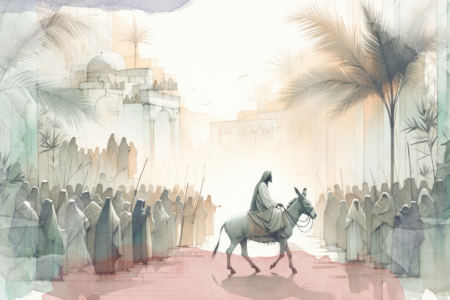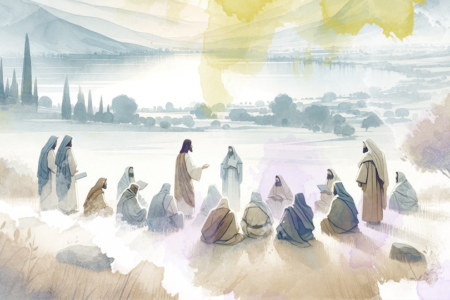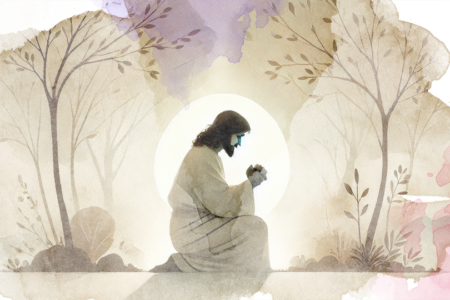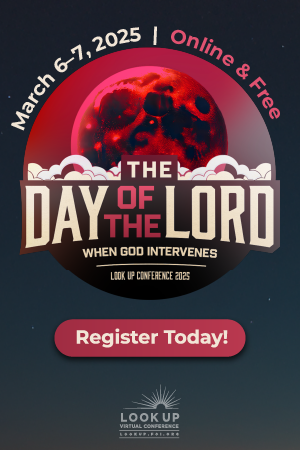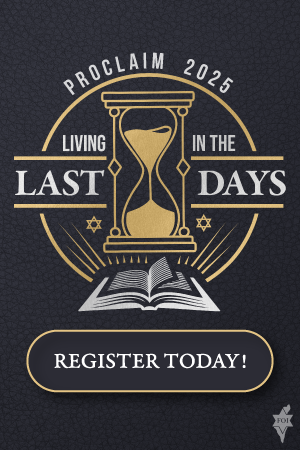The Life, Times And Message Of Isaiah The Prophet PART XXVIII
ISAIAH 34-35
In the so-called “Book of Woes” (Isaiah 28-33), the prophet severely rebuked the leaders of Jerusalem for their reliance upon Egypt instead of trusting the Lord to save them. He predicted that Assyria would be destroyed, not because of Egypt’s intervention, but by the “sword of the Lord.”
In chapters 34-35, which is an epilogue to the “Book of Woes,” Isaiah looks beyond the downfall of Assyria to the judgment of the ungodly nations of the world. Edom, Israel’s brother nation, which behaved in a most unbrotherly fashion towards Israel in the days of her severe distress, is singled out as the personification of all that is evil in humanity, and is destined to share the fate of Sodom and Gomorrah.
Like Babylon, Edom too shall become the habitation of all the eerie creatures of the wilderness. In view of the apocalyptic overtones of Isaiah 34, some critics have maintained that this chapter was a later, post-exilic addition.
A more reasonable explanation for the similarities between Isaiah 34 and some of the later prophetic writings (Zephaniah 1:7-8; 2:14-15; Ezekiel 39:4, etc.) is the assumption that the prophecies of Isaiah were familiar to the post-exilic prophets.
Chapter 35 is a glorious vision of the future redemption of Israel, and presents a striking contrast to the dismal picture of the desolation of Edom.
ISAIAH 34
WORLD JUDGMENT AND THE DOOM OF EDOM
1 Come near, you nations, to hear,
You peoples, attend.
Let the earth and her fullness hear,
The world and all that springs forth from it.
2 For the LORD has indignation against all the nations,
And fury against all their host.
He has put them under a ban,
He has delivered them to the slaughter.
3 And their slain shall be cast out,
And from their corpses shall rise a stench,
And the mountains shall melt from their blood.
4 And the host of heavens shall be dissolved,
And the heavens shall be rolled up like a book scroll,
And all their hosts shall fall down,
As the leaf falls from the vine,
And the fig falls from the fig tree.
5 For my sword has drunk her fill in heaven.
Behold it shall come down upon Edom,
And upon the people of my ban, for judgment.
6 The sword of the LORD,
It is full of blood, greased with fatness,
With the blood of lambs and goats,
With the fat of the kidneys of rams,
For the LORD has a sacrifice in Bozrah,
A great slaughter in the land of Edom.
7 And the wild oxen shall come down with them,
The bullocks with the bulls,
Their land shall be saturated with blood,
And their dust sodden with fatness.
8 For this is a day of the LORD’S vengeance,
A year of retribution for the controversy of Zion.
9 And her streams shall turn into pitch,
And her dust to brimstone,
Her land shall become burning pitch.
10 It shall not be quenched by night or day,
Its smoke shall ascend for ever,
None shall ever pass through it.
11 The pelican and the hedgehog shall possess it,
And the owl and the raven shall dwell in it.
And He shall stretch over it,
The line of chaos and the plummet of confusion.
12 Her electors shall have no kingdom to proclaim,
Her princes shall be mere nothings.
13 Upon her palaces thorns shall come up,
Nettles and thistles in its fortresses,
It shall be a lair for jackals,
An enclosure for ostriches.
14 There wild cats shall meet hyenas,
And satyre shall call each other,
There also shall the night demon (Lilith) repose,
And find for herself a resting place,
15 There will the arrowsnake make her nest,
Lay her eggs, hatch and brood in her shadow.
There too shall the vultures gather,
Each one with her mate.
16 Search in the book of the LORD,
Not one of these shall be missing.
None shall want her mate,
For His mouth has commanded,
And His spirit has brought them together.
17 And he has cast a lot for them,
And His hand has allotted it to them by line,
They shall possess it for ever,
And dwell there from generation to generation.
Author’s Translation
Comment:
1-4 In words which bring to mind Isaiah 1:1,the prophet now invited the whole creation to hear about God’s indignation against all the nations which, the prophet predicts will result in their destruction. The judgment of the Lord is cosmic, and will shake the very foundations of the universe. (cf. Isaiah 13:13).
5-7 The wrath of God is directed in particular against Edom for her relentless hatred against her brother Israel. The sword of the Lord (v. 5) is obviously the same “heavy, great and strong sword” previously mentioned by the prophet (27:1). It will descend in full fury upon Edom.
Some commentators have attempted to substitute for “Edom” the word “adam” (man), spelled in Hebrew with the same consonants, but with different vowel signs (Duhm, Kissane). However, the context, and the mention of Bozrah, an Edomite city, (v.6), does not favor such a reading. We find that the accepted Hebrew text is almost invariably to be preferred to dubious textual speculations and corrections.
The smaller sacrificial animals—lambs, goats, oxen, bulls and bullocks—represent the smaller nations such as Edom and Moab, while the larger beasts symbolize the powerful nations such as Assyria, Babylon and Egypt (v. 1).
8-10 Divine retribution for all wrongs inflicted upon the people of the LORD.
The Controversy of Zion (v. 8).
The Lord Himself appears as the champion of Zion to right her wrongs and to settle her accounts. Edom is to become a desolate land of burning pitch and brimstone, never again to be inhabited by human beings (v. 9-10).
The description of desolated Edom situated south of the Dead Sea is fully in keeping with the mountainous and volcanic nature of the land.
11-15 Edom is to become the habitation of eerie creatures, similar to those which Isaiah predicted would one day inhabit desolate Babylon (Isaiah 13:20-22).
11 The line of chaos and the plummet of confusion
Isaiah employs terms taken from the story of creation to describe the fate of Edom, which will be levelled with the line of chaos (tohu) and the plummet of confusion (bohu).
12 Her electors shall have no kingdom to proclaim
The kings of Edom were elected by a group of princes, whom Isaiah calls “horim” (“freemen,” or “lords”).
14 There shall “the night demon” (Lilith) repose
Among the gruesome creatures dwelling in deserted Edom, Lilith, the night monster, or night ghost, is mentioned. In later rabbinical literature, Lilith was considered as a female demon who sought to harm children, especially newborn babies.
16 Search in the book of the LORD—For His mouth has commanded
This is one of the most remarkable statements in the book of Isaiah. Since in the days of Isaiah the Old Testament canon was not yet completed, the prophet apparently was referring to his own writings as “the book of the Lord,” appealing to future generations to verify his predictions by comparing them with future events, to prove that his prophecies were divinely inspired. Isaiah’s appeal to future events has an even wider application and may be extended to all of the Scriptures.
Edom, desolate, deserted, still the lair of wild creatures after more than twenty six centuries, is a mute witness to the truth of God’s Word.
17 And He has cast a lot for them
What happened to Edom is no more happenstance. God Himself has decreed that it should never be inhabited, and it has remained an eerie desert land, even to the present day.
ISAIAH 35
THE RETURN OF THE REDEEMED TO THEIR HOMELAND
1 The wilderness and the dry land shall be glad,
And the desert shall rejoice and blossom like a rose.
2 It shall blossom abundantly and rejoice
With great joy and singing.
The glory of Lebanon shall be bestowed upon it,
And the splendor of Carmel and Sharon,
They shall see the glory of the Lord,
The splendor of our God.
3 Strengthen you the weak hands,
And make the trembling knees firm.
4 Say to them who are of a fearful heart:
“Take courage, fear not!”
Behold your God shall come with vengeance,
He will come with divine retribution and help you.
5 Then shall the eyes of the blind be opened,
And the ears of the dumb shall be unstopped.
6 Then shall the lame leap as the deer,
And the tongue of the dumb shall shout.
For in the wilderness waters shall break forth,
And streams in the desert.
7 And the desert mirage shall become a pool,
And the thirsty land springs of water.
In the lairs of jackals herds shall lie down,
It shall become an enclosure of reeds and rushes.
8 And it shall be there a path and a road,
It shall be called “The Holy Road,”
The unclean will not pass over it,
The traveler, though a fool, shall not go astray there.
9 No lion shall be there,
No ravenous beasts shall enter it, nor be found there,
Only the redeemed shall walk therein.
10 And the ransomed of the LORD shall return,
And shall come to Zion with singing.
Eternal joy shall be upon their heads,
They shall obtain gladness and joy,
And sorrow and sighing shall flee away.
Comment:
1-2 Isaiah visualizes the once-captive Israel now returning to her homeland with joy and singing through the wilderness. The desert participates in their redemption and joy; it blossoms like a rose with all the splendor of Lebanon, Carmel and the fruitful valley of Sharon in springtime.
3-4 They who became discouraged and frightened are now consoled with the assurance that soon their God will come to right their wrongs.
“Take courage, fear not” is the message from God.
5-6 The personal intervention of God on their behalf will have a regenerating effect upon their sinful nature, they who once were so blind and deaf and lame, (Isaiah chapter 6) will now see, hear and leap for joy. (v. 5-6)
Isaiah apparently believed that the transformation will be not only spiritual but also in the literal and physical sense, because sickness and sin are closely related in prophetic thinking (cf. Isaiah 33:24; Ex. 23:25).
7 The desert mirage (sharab) shall become a pool . . .
The shimmering desert heat, which so often produces the illusion of abundant water will now become a real pool of water, the deserted place a green pasture with peacefully reclining herds of domestic animals. As always, Isaiah sees nature participating in the destiny of man, which was once cursed for his sins, but blessed again through his redemption.
8-10 The Lord Himself will prepare a highway for His redeemed people, for their exclusive use. It will be a safe (well marked) road, secure from intrusions, either by ravenous animals, or by unclean men. Only the redeemed of the Lord shall have access to it and the privilege of walking along this Holy Road of God.
Even as they once went weeping and groaning into exile, now they will return with everlasting joy and singing to Zion, the habitation of their God. Sorrow and sighing shall vanish for ever. (v. 10)
Isaiah 35, with its evangelistic message and exalted vision of the future of redeemed Israel, is closely related to the second part of Isaiah. The closing lines of the chapter sound like a prelude to Isaiah 40:1, “Comfort ye, comfort ye my people.”
Because of this, those who deny the unity of Isaiah have also attributed this chapter to the post-exilic period.
However, we consider chapter 35 as further evidence that the author of Isaiah 1-39 was the same inspired prophet who wrote chapters 40-66.
The closing four chapters (36-39) form a historical bridge linking the first part (1-39) and the second part of the book of Isaiah (40-66).


